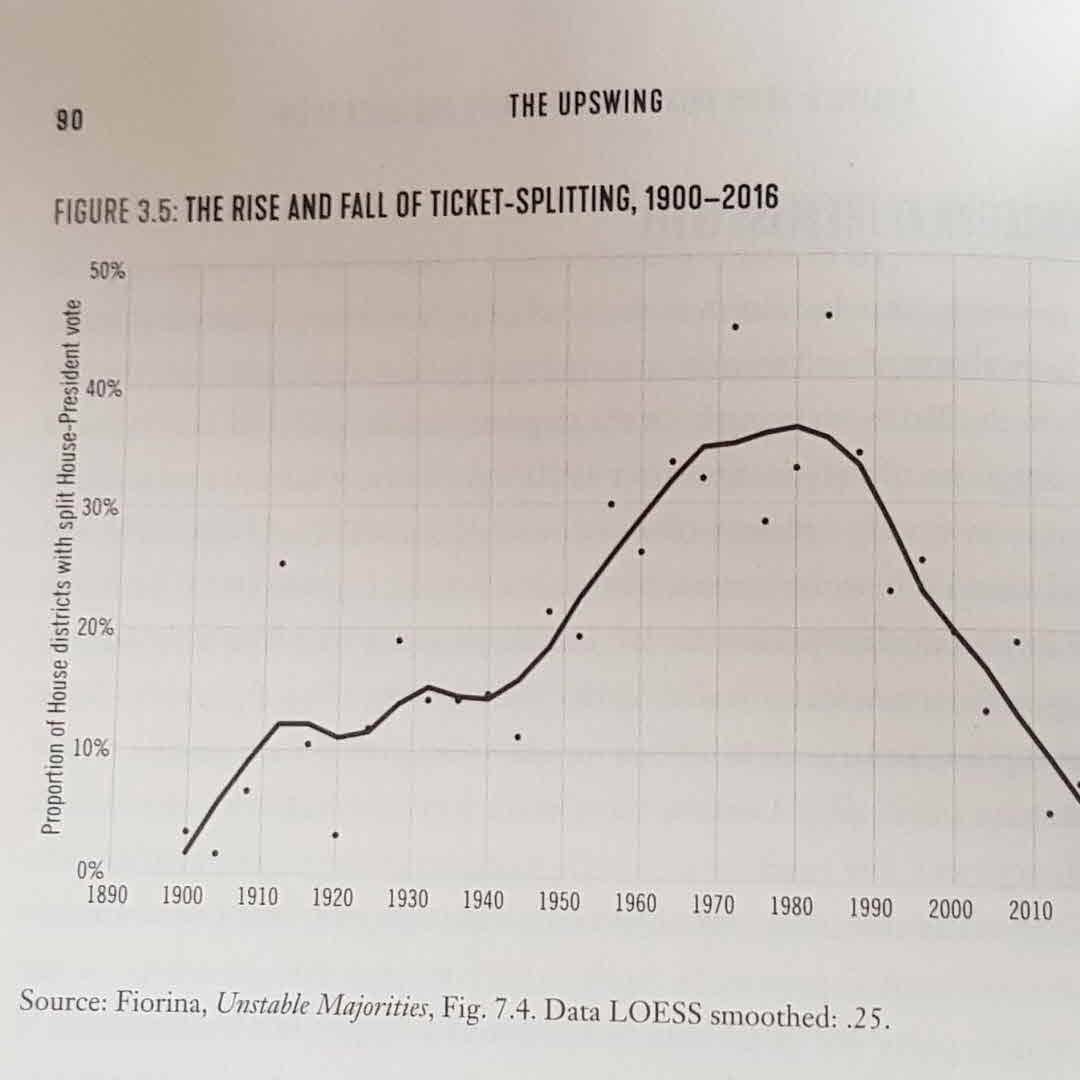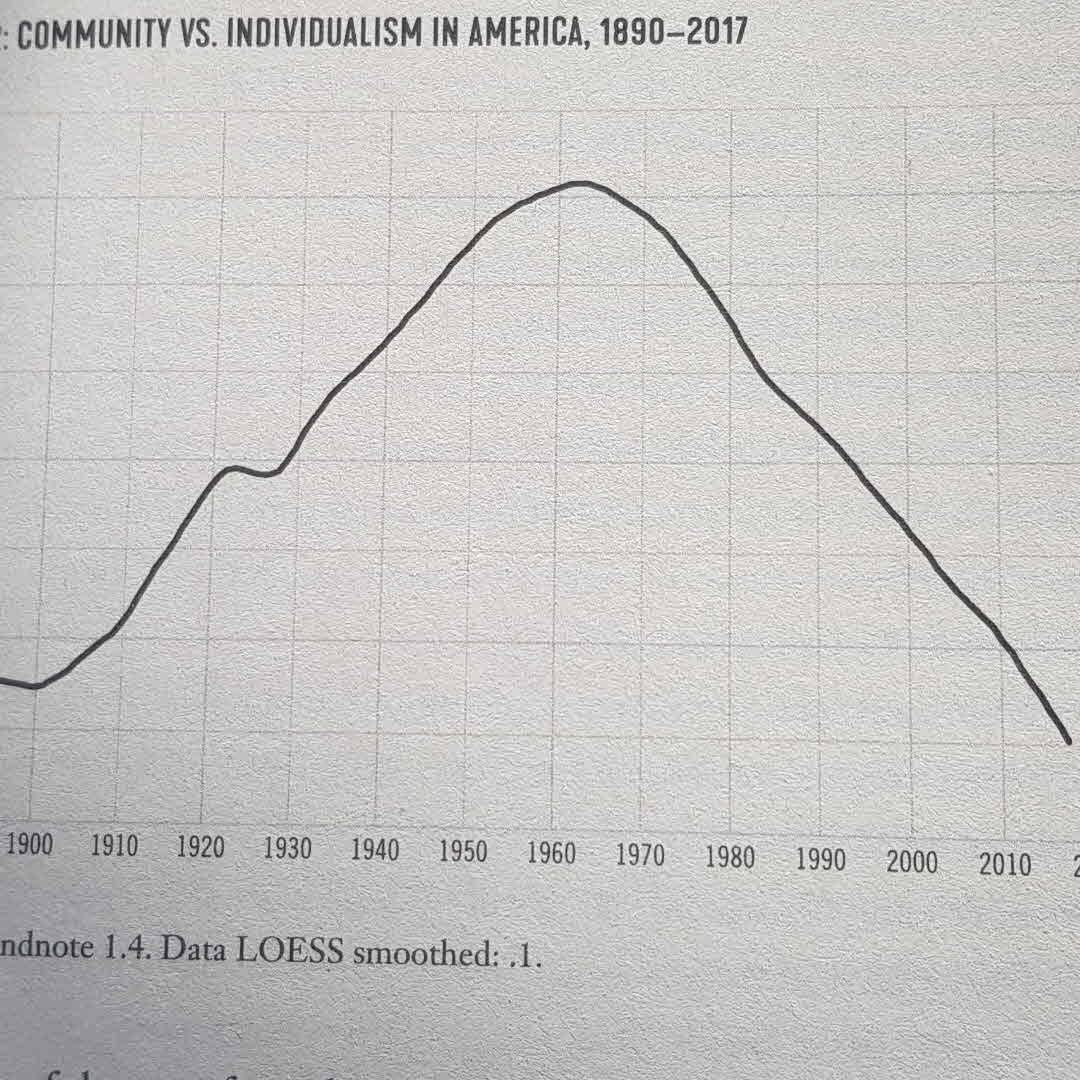
Split-ticket voting (one party for President, the other for Congress), 1900 to 2010
1 stack add

Split-ticket voting (one party for President, the other for Congress), 1900 to 2010

An aggregate measure of economic inequality, political polarization, social fragmentation, and cultural narcissism (the "I-we-I" curve) from 1890 to 2020...though he later clarifies, "Because African Americans, women, and many others had to fight to achieve any basic form of equality and inclusion during the first two thirds of the twentieth century...any supposed 'we' America was moving toward in this period was inherently racist and sexist"